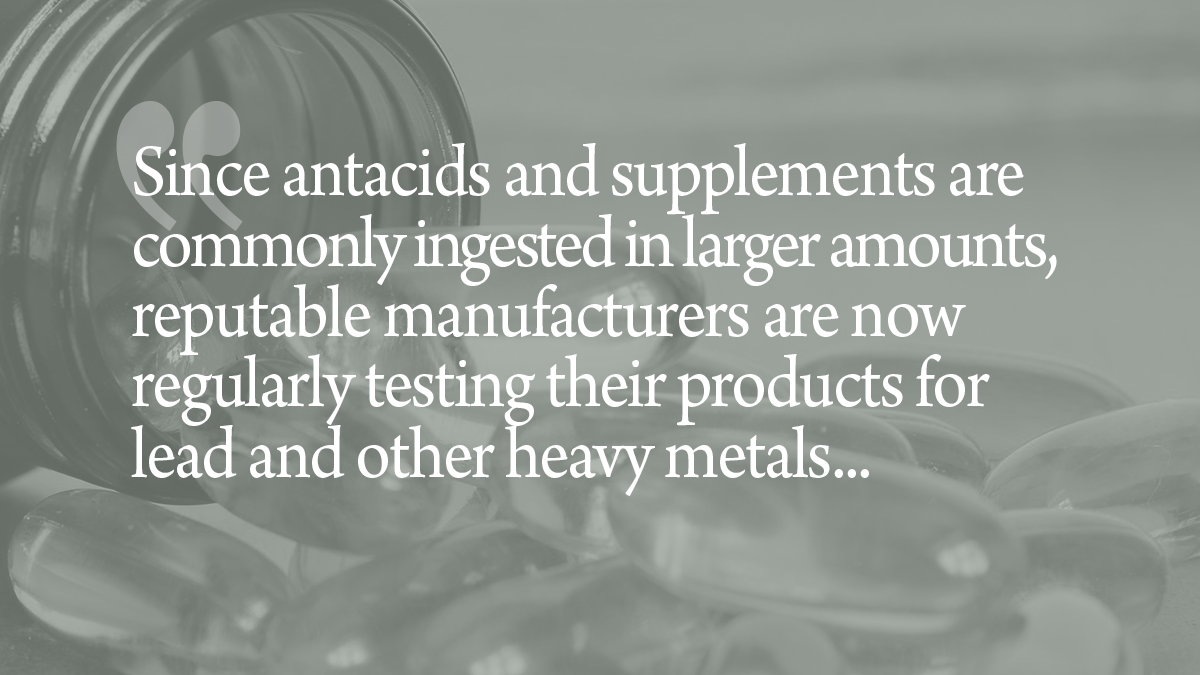Monitoring the Sea of Supplements
We do love our dietary supplements. A venerable alphabet of vitamins, minerals, amino acids, herbs, botanicals, enzymes, and energy drinks can be had on line and in local stores that make all sorts of health claims. Apparently many of us believe them since the global market for dietary supplements is nearly $220 billion a year.1
Regulations Vary
With so many supplements on the market, it raises an obvious question: who regulates them? The answer is not so simple.
In the European Union there are strict regulations as to the labelling, contents, claims, and dosage recommendations of dietary supplements.2 While the U.S. Food and Drug Administration (FDA) also requires supplements to be labeled, those labels lack the detail mandated by the EU.3 In addition, the FDA does not require proof of either the safety or effectiveness of supplements before they go to market.
Instead, the supplement industry is expected to police itself. If any serious safety or contamination issues occur, its manufacturer is then required to notify the FDA.4
That does not mean that some supplement companies are allowed to make unsubstantiated claims about their products. The Federal Trade Commission recently fought product claims to treat or prevent serious diseases, including heart disease and prostate cancer. The FTC also won a case where a company claimed that its product was a “clinically proven natural solution to diabetes.”5
Then there are state regulations, with California leading the way. The California Safe Drinking Water & Toxic Enforcement Act of 1985 (known as Prop 65) prohibits exposure to chemicals that might cause cancer or reproductive problems. Since lead and many other heavy metals are both cancer-causing agents and reproductive toxins, human consumption of these must be kept below 0.5 µg/day.6 That poses a challenge for supplement manufacturers.
A single antacid tab or supplement, for instance, may contain 100% of the required daily amount of calcium, which also contains trace amounts of lead. Since antacids and supplements, including fish oil, are commonly ingested in larger amounts on a daily basis, reputable manufacturers are now regularly testing their products for lead and other heavy metals on a regular basis to ensure their products are below the legal allowable limits.7
The Importance Of ICP-MS
Whether you are a regulator, supplier, or manufacturer, analytical testing of supplements using Inductively Coupled Plasma Mass Spectrometry (ICP-MS) is an essential tool in maintaining Good Manufacturing Practices (GMP).
GMP is a universally recognized system of processes, procedures, and documentation to help assure that a product being produced by a supplement manufacturer has the identity, strength, composition, quality, and purity that it is represented to possess, says Ed Wyszumiala, General Manager of Dietary Supplements at NSF International, the leading global provider of public health and safety-based risk management solutions.8
Such concerns take on an even larger significance as the global economy continues to expand and raw materials and ingredients, including nanomaterials such as silver nanoparticles, that are now found in supplements may originate from virtually anywhere on the globe.9
According to Lee Davidowski, PhD, Senior Product Specialist at PerkinElmer, ICP-MS is the most suitable technique available for determining the presence of heavy metals in supplements at very low levels.
Using the PerkinElmer® NexION® ICP-MS, scientists have been able to detect lead in calcium-containing supplements at levels 50 – 100x lower than other detection techniques, such as Graphite Furnace Atomic Absorption Spectroscopy. That is particularly important when considering the cumulative effect of consuming multiple supplements per day.10
“The NexION® family of ICP-MS instruments not only meet the Good Manufacturing Practice needs of the supplements industry,” Davidowski says, “ they extend the metal analysis capabilities of the modern laboratory to meet even more challenging analyses in the future.”
References
- Joel John, “Global Dietary Supplements Market Will Reach USD 220.3 Billion In 2022: Zion Market Research, Zion Market Research Report, January 11, 2017, accessed June 5, 2017.
- European Commission, “Food Supplements,” European Commission Food Safety, accessed June 5, 2017.
- Ibid.
- United Stated Food And Drug Administration, “FDA 101: Supplements,” accessed June 5, 2017.
- Jennifer Grebow, “From Trump To The FTC: 2017 Dietary Supplement Regulatory Issues To Watch,” Nutritional Outlook, January 23, 2017, accessed June 5, 2017.
- California EPA Office of Environmental Health Hazard Assessment, “List of Chemicals Known to the State of California to Cause Cancer or Reproductive Toxicity,” California Code of Regulations, Title 22, Section 12000, August, 1997.
- Lorraine Foglio, Lee Davidowski, “The Determination Of Lead In Calcium-Based Antacid And Dietary Supplements Using The NexION 300 ICP-MS System To Comply With The State Of California’s Proposition 65 Legislation,” PerkinElmer Application Note, 2010, accessed June 5, 2017.
- Ed Wyszumiala, “Manager’s Letter,” Sourcing Guide For Dietary Supplement Suppliers And Manufacturers, Fall/Winter 2012, accessed June 6, 2017.
- Lee Davidowski, Chady Stephan, “Characterization Of Silver Nanoparticles In Dietary Supplements By Single Particle ICP-Mass Spectrometry, PerkinElmer Application Note, 2014, accessed June 6, 2017.
- R. Wolf, “Analysis of Lead (Pb) In Antacids And Calcium Compounds For Proposition 65 Compliance,” Atomic Spectroscopy, 18, (6), 1997.
